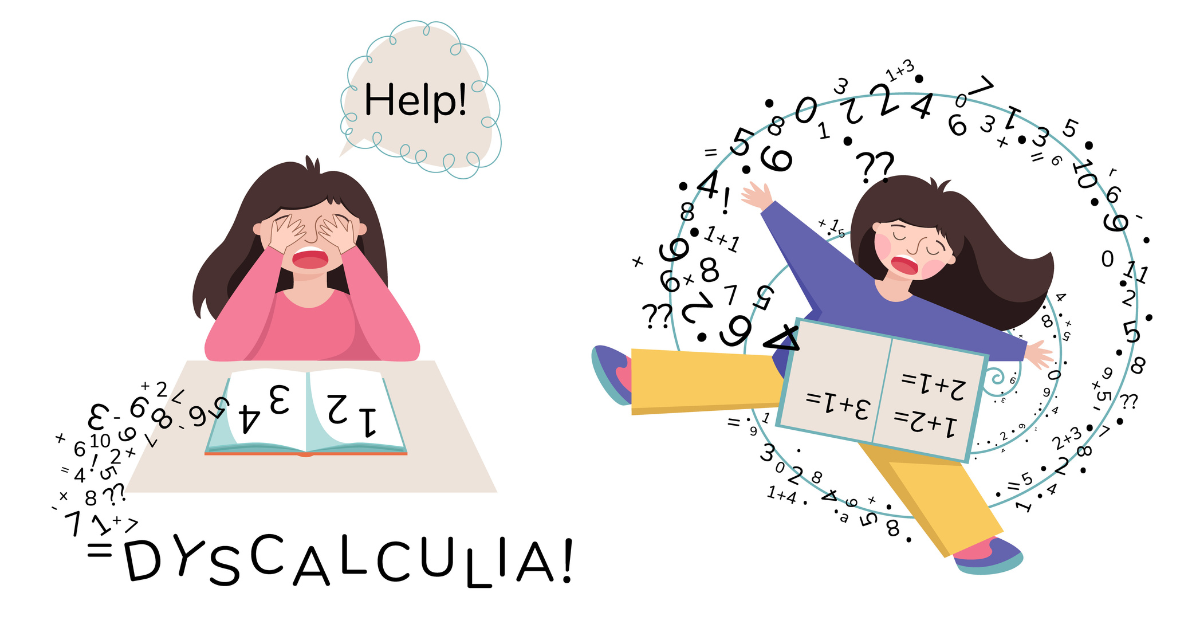Discovering that you or a loved one has a learning disability can be a lonely experience. But the truth is, around 20% of the US population faces some sort of learning or attention issue. Shockingly, most of them never receive the aid they need to overcome their challenges.
Let’s change that! We can make a difference by spreading awareness and assisting those in need.
If you’ve just discovered that your child has dyscalculia, you might be thinking, "What in the world is dyscalculia?" Don't worry, you're not alone! When it comes to learning differences, the news can feel overwhelming. But understanding dyscalculia breeds clarity and comfort! Let's dive in!
Many people have done a lot of work to help people with this learning difference to be able to succeed at home, school, and in the wider world. So what is dyscalculia, and what can you do to support your child as they work through this learning difference?
Read on to learn all about the most vital things to understand about dyscalculia!
What Is Dyscalculia?
Dyscalculia is a learning disability that relates to numbers. People who have dyscalculia may have trouble learning and using math concepts.
One important thing to understand about dyscalculia is that it does not relate to intelligence. Some people find out if they have dyscalculia and assume that they will struggle with learning all kinds of things. However, dyscalculia only relates to troubles with learning and using math concepts.
Many people with dyscalculia are very intelligent and have no trouble learning about other kinds of concepts at all.
Challenges for Children With Math Learning Problems
People with dyscalculia can struggle to learn how to use arithmetic operations like addition and multiplication. Outside of school, it can also make it harder to manage tasks like budgeting and time management.
Sometimes, people assume that children with dyscalculia must simply lack the motivation to learn or use math concepts. However, that can take a difficult situation and make it even worse.
Trying harder and harder will not make it easier to learn math concepts for someone who has dyscalculia. In fact, it can make it more difficult for them to relax. That will interfere with truly understanding math concepts that already do not come as easily to them as they do to others.
Recognizing Symptoms of Dyscalculia
If your child struggles to perform arithmetic operations like addition, subtraction, and division, that can be a sign that they may have dyscalculia. Of course, this is not a foolproof indicator that someone has dyscalculia. Even children who do not have dyscalculia sometimes struggle when they are first learning about math.
Another indicator that your child might have dyscalculia is that they have trouble understanding the concepts of fractions or percentages. This is not about their ability to perform operations with them. It is about their ability to understand what a fraction or percentage even is.
If your child has trouble telling time or managing it, that can also be a sign that they have dyscalculia. The same is true of difficulties with learning to read and write numbers.
Managing Learning Disorders at Home and School
Helping your child understand dyscalculia can help them feel better about themselves. If they do not understand that some people struggle with math concepts, they might conclude that they are unintelligent or that something is wrong with them.
However, you might want to make a point of speaking with your child about how everyone has their own difficulties. Just because they have trouble with math does not mean that other areas of their life will not come easier to them.
Struggling with math concepts is only a single part of who they are which should be understood in the broader context of their other characteristics.
It can also help to assure your child that you will provide them with extra help to overcome their math learning disability.
Overcoming a Math Learning Disability
People with dyscalculia can still learn to understand math concepts. Often, they simply need to learn them more slowly.
Using the right tools can help your child begin to grasp how arithmetic operations function. For example, you might use physical objects to help your child practice understanding addition and subtraction.
Abstract numbers can be more difficult to understand. However, it is easier to appreciate how putting more coins or apples together leads to larger quantities.
You may also want to arrange for your child to have extra time at school. Sometimes, this is enough for a child with dyscalculia to finish math assignments.

Online Tools for Overcoming Learning Differences
Consider looking online for supportive communities. You can learn a lot from other people with dyscalculia. It might help your child to hear about the successes that people with similar learning difficulties have achieved.
You can also learn about online tools to help your child learn math concepts. Khan Academy provides tons of math courses for children of all ages.
You can also use learning tools like Mathway. Mathway is a special calculator that breaks down math operations.
Know How to Help Your Child With Their Dyscalculia
When many parents hear that their child has dyscalculia, their first reaction is "What is dyscalculia?" We hope that this article has helped you understand this learning disorder better as well as how you can support your child as they work through it.
There are certain difficulties that come with having dyscalculia. However, there is a lot you can do to facilitate learning and healthy development.


